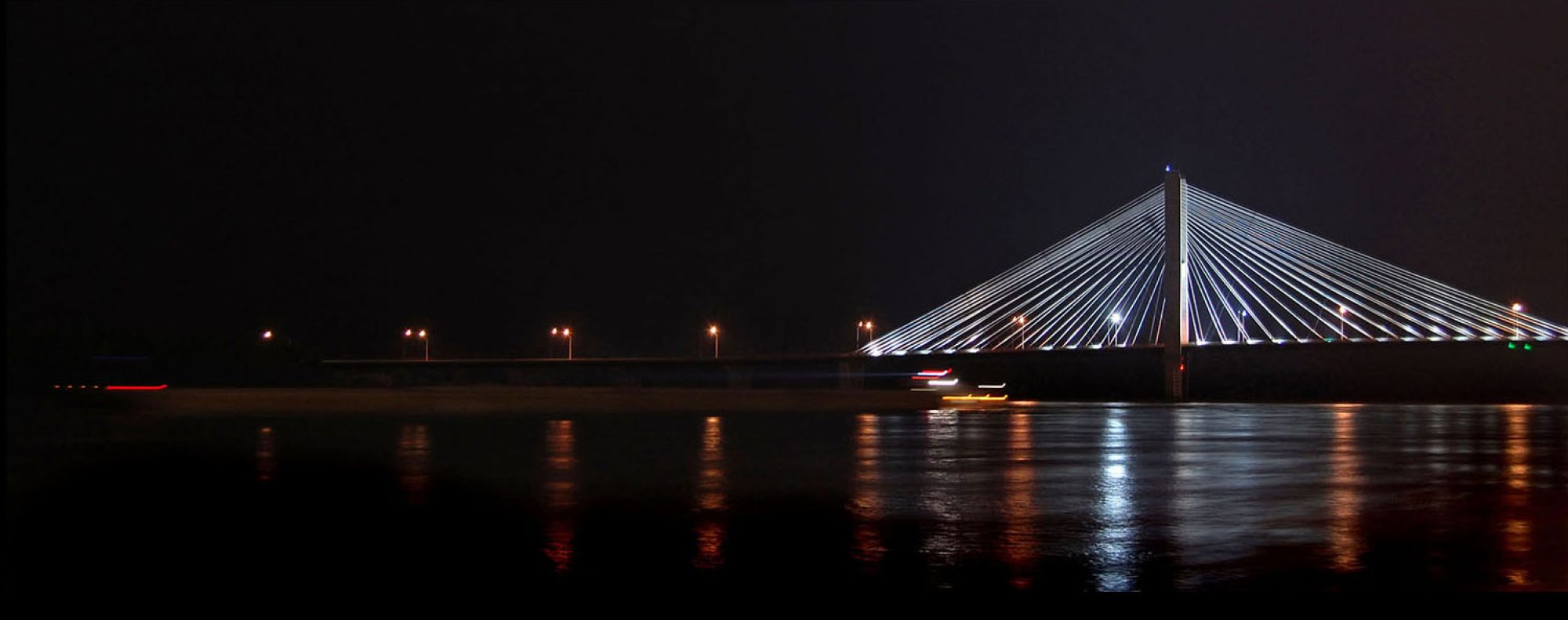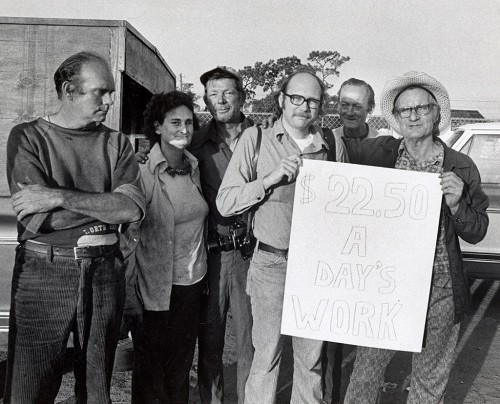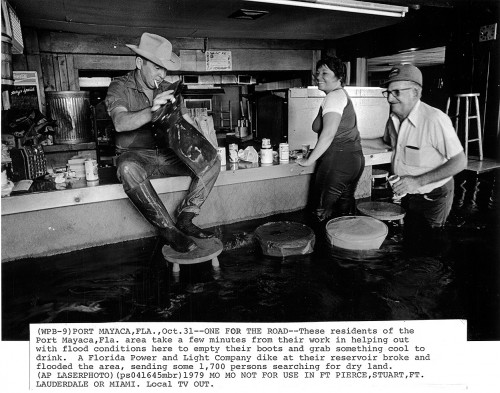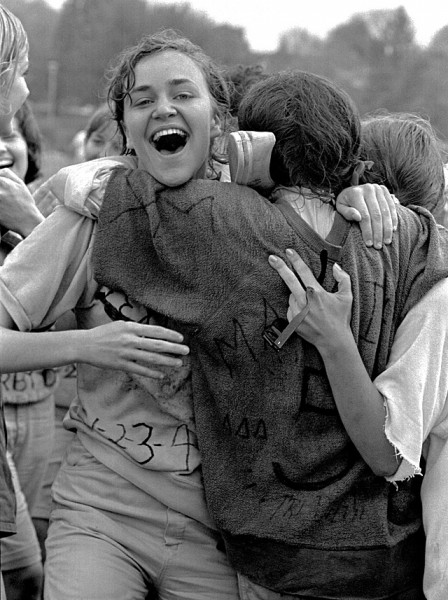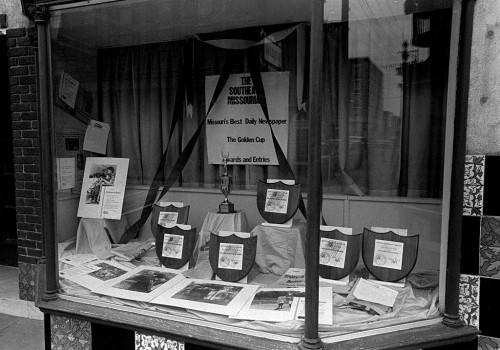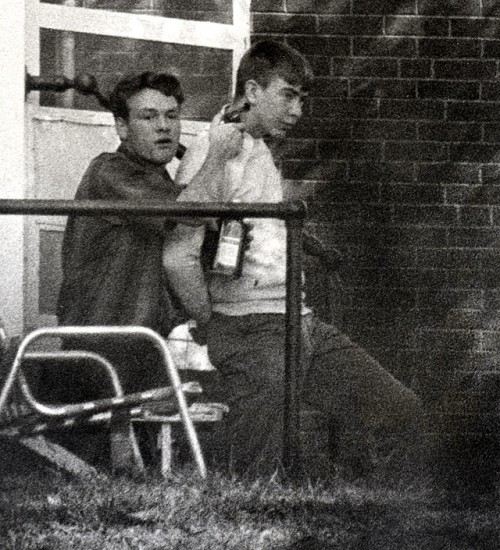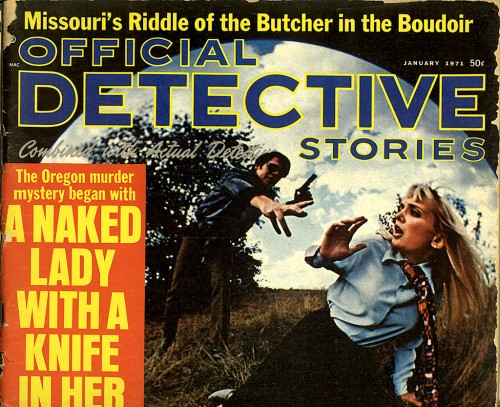 I guess it’s safe to tell this story now. On my way back home, I passed through Gastonia, N.C., where I worked in the early 70s. One of my favorite SBI (State Bureau of Investigation) officers, sadly, is no longer with us, I found. To keep him from haunting me, I’ll just refer to him as “Vance.”
I guess it’s safe to tell this story now. On my way back home, I passed through Gastonia, N.C., where I worked in the early 70s. One of my favorite SBI (State Bureau of Investigation) officers, sadly, is no longer with us, I found. To keep him from haunting me, I’ll just refer to him as “Vance.”
Bill, the Gazette cop reporter, and I supplemented our meager newspaper incomes by freelancing stories and photos to crime magazines. Gaston County folks had unique and imaginative ways of eliminating each other. I had lots of tasteless pictures and Bill had a knack for lurid prose, so we could sell something every couple of months to turn fifty or seventy-five bucks each.
“You’re making this stuff up”
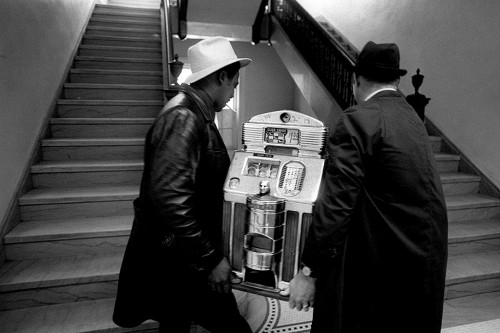 One of the editors we dealt with in Chicago called and said, “I think you guys are making this stuff up. I have to pass through there and I want to meet you.”
One of the editors we dealt with in Chicago called and said, “I think you guys are making this stuff up. I have to pass through there and I want to meet you.”
He happened to pick a day when there was a major bootlegging and gambling raid going on, so we took him with us. My SBI buddy, Vance, said, “We know there is gambling going on in that bar, but they know all of us. We need a stranger to go in and observe the gambling so we can get a warrant. Hey, you, Chicago. Go knock on the door and tell ’em ‘Charlie sent me.’ Look around and come back out.”
He was a frail little thing who was obviously more comfortable editing crime than seeing it, but he went in, saw skullduggery and reported back. They got the warrant and busted the place for gambling and bootlegging. The cops were standing around the card table counting the cash they had seized when one of them asked, “Anybody here got a rubber band to wrap this up?” One of the gamblers reached into his pocket, pulled out a roll of cash bigger than what was on the table, slid a rubber band off it and handed it to the cop.
Later that evening, we were over at Bill’s house rehashing the day’s events when the phone rang. It was Vance looking for me.
“I need a favor”
“I’ve got a favor to ask. It’s totally off the record. Can you help me out?”
“Let’s talk.”
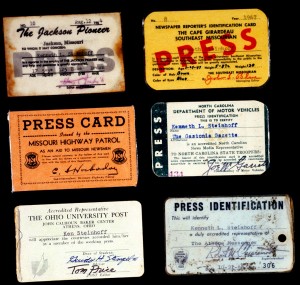 “An old woman who had been confined to a state mental hospital died and her body was shipped down here to a funeral home. The family, who hadn’t seen her in years is insisting that the woman in the casket isn’t ‘Aunt Nellie.’ We KNOW it’s Aunt Nellie because the institution’s records say that Aunt Nellie has a club foot. They want someone to go to the funeral home to take a photo of Aunt Nellie and her foot so they can confirm her identity.”
“An old woman who had been confined to a state mental hospital died and her body was shipped down here to a funeral home. The family, who hadn’t seen her in years is insisting that the woman in the casket isn’t ‘Aunt Nellie.’ We KNOW it’s Aunt Nellie because the institution’s records say that Aunt Nellie has a club foot. They want someone to go to the funeral home to take a photo of Aunt Nellie and her foot so they can confirm her identity.”
I went with him to the funeral home, shot the photos and handed him a roll of film. “This never happened,” I told him. (Not that the newspaper would have cared anyway.)
“Can I pay you for your time?”
“Nah, I’d rather have you owe me.”
“Well, we took down all those joints today. I have a trunk full of booze. Want some?
“Nah.”
“How ’bout some pot?”
“That’s OK.” I was afraid to see what else he would offer me.
I just “happened” to have a screwdriver
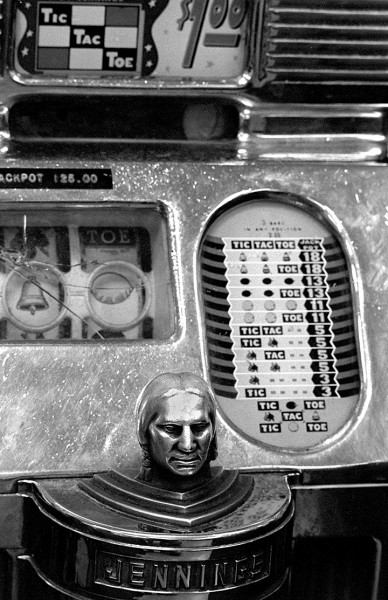 During the raid, I spotted this cool slot machine being carried out. It had a brass Indian head on it that had been polished shiny by hundreds of hands rubbing it for luck. When the courts were through with the case, all of the gambling equipment was consigned to the local landfill where it was to be destroyed by pulverizing it with a bulldozer.
During the raid, I spotted this cool slot machine being carried out. It had a brass Indian head on it that had been polished shiny by hundreds of hands rubbing it for luck. When the courts were through with the case, all of the gambling equipment was consigned to the local landfill where it was to be destroyed by pulverizing it with a bulldozer.
I saw my slot machine sitting waiting for its turn and just “happened” to have a screwdriver with me. I took the Indian off and sidled up to my buddy Vance. “I’d really like for this to follow me home.”
“Sorry, Ken, I have to swear to the judge that I saw the pieces scattered all over the landfill,” he said, tossing it about 10 feet and turning his back.
The Indian head is in a place of honor on my bookshelf. R.I.P Vance.
Oh, and, by the way, the Chicago editor never questioned any of our stories after that.
P.S. Mother has a slot machine story of her own. (It’s at the bottom of the post.)
